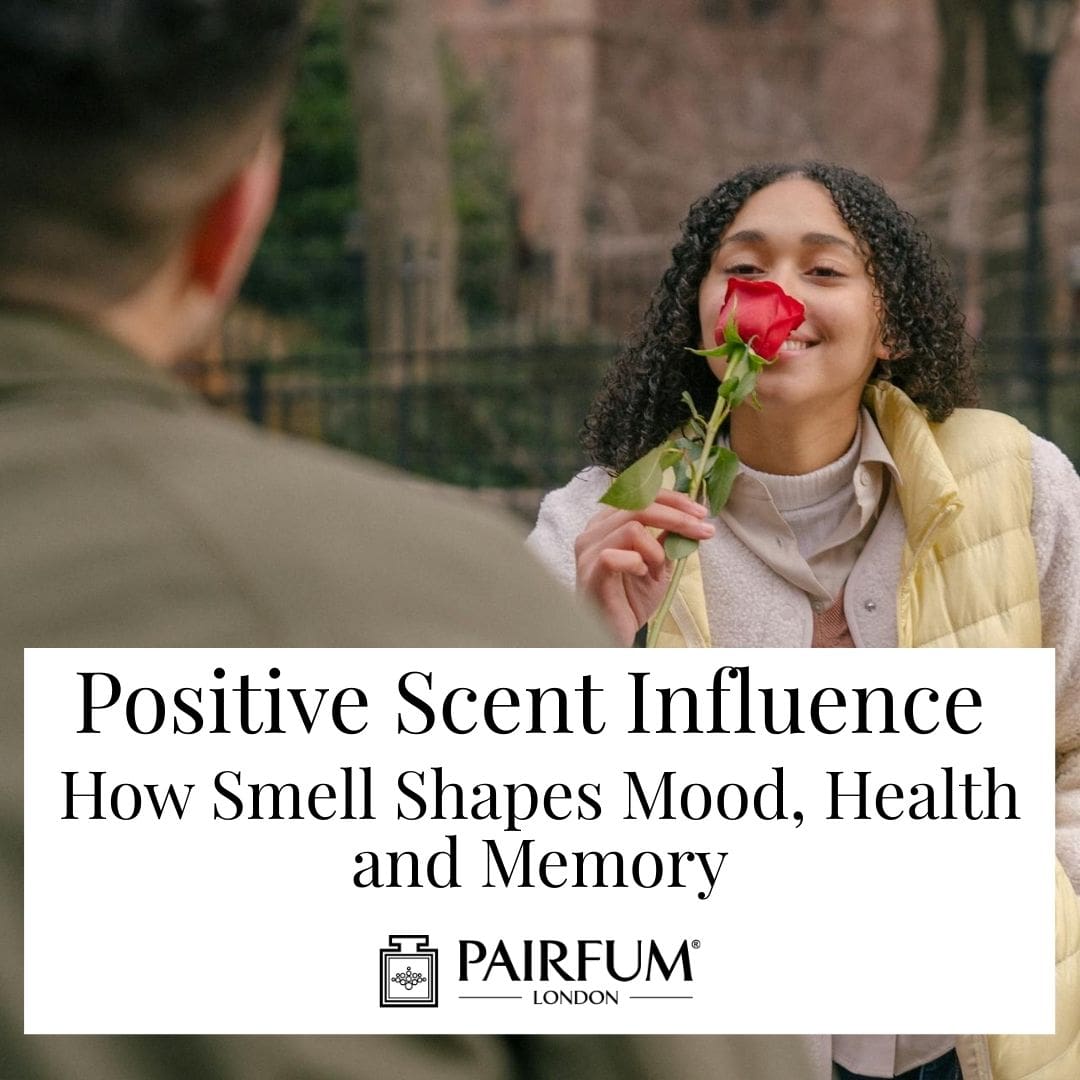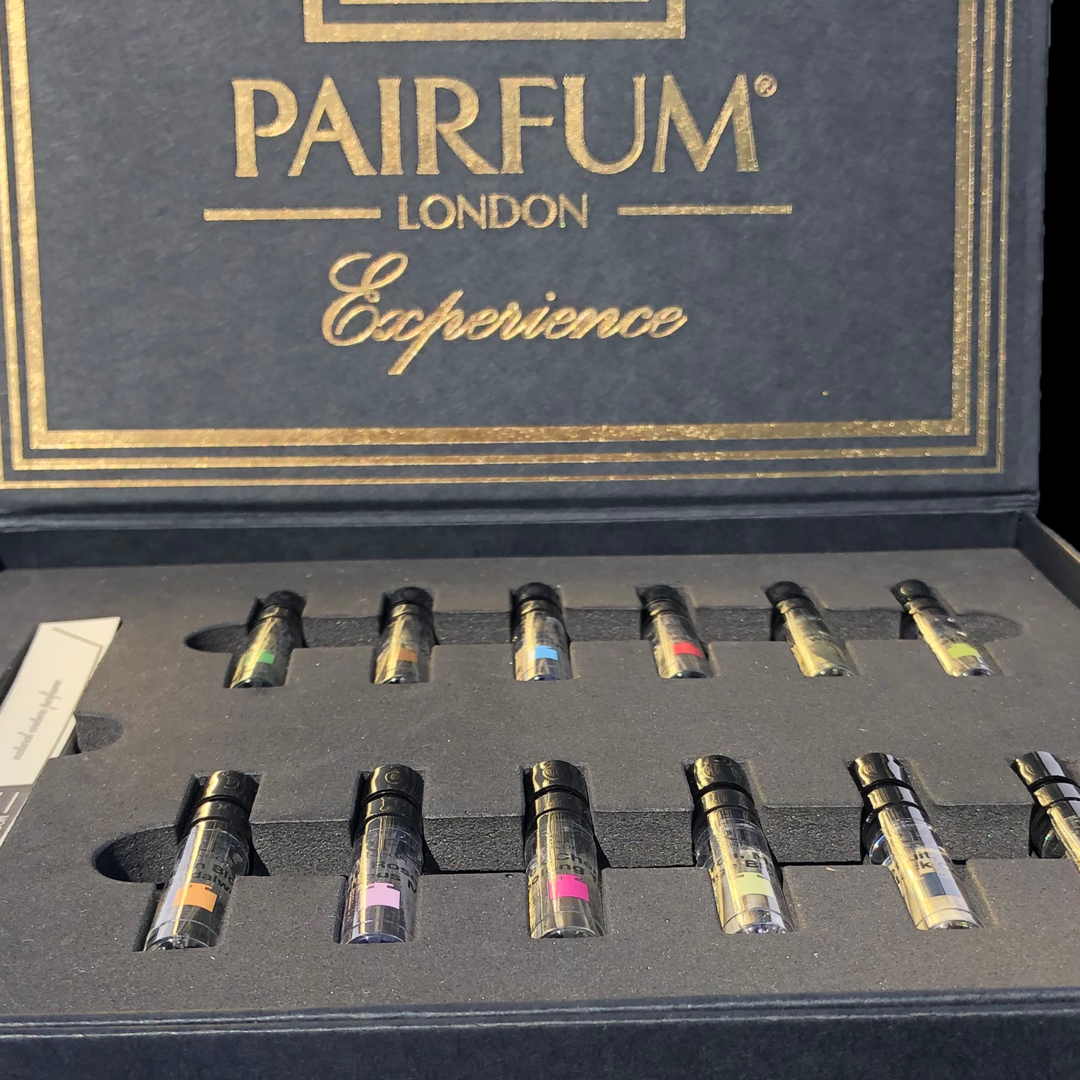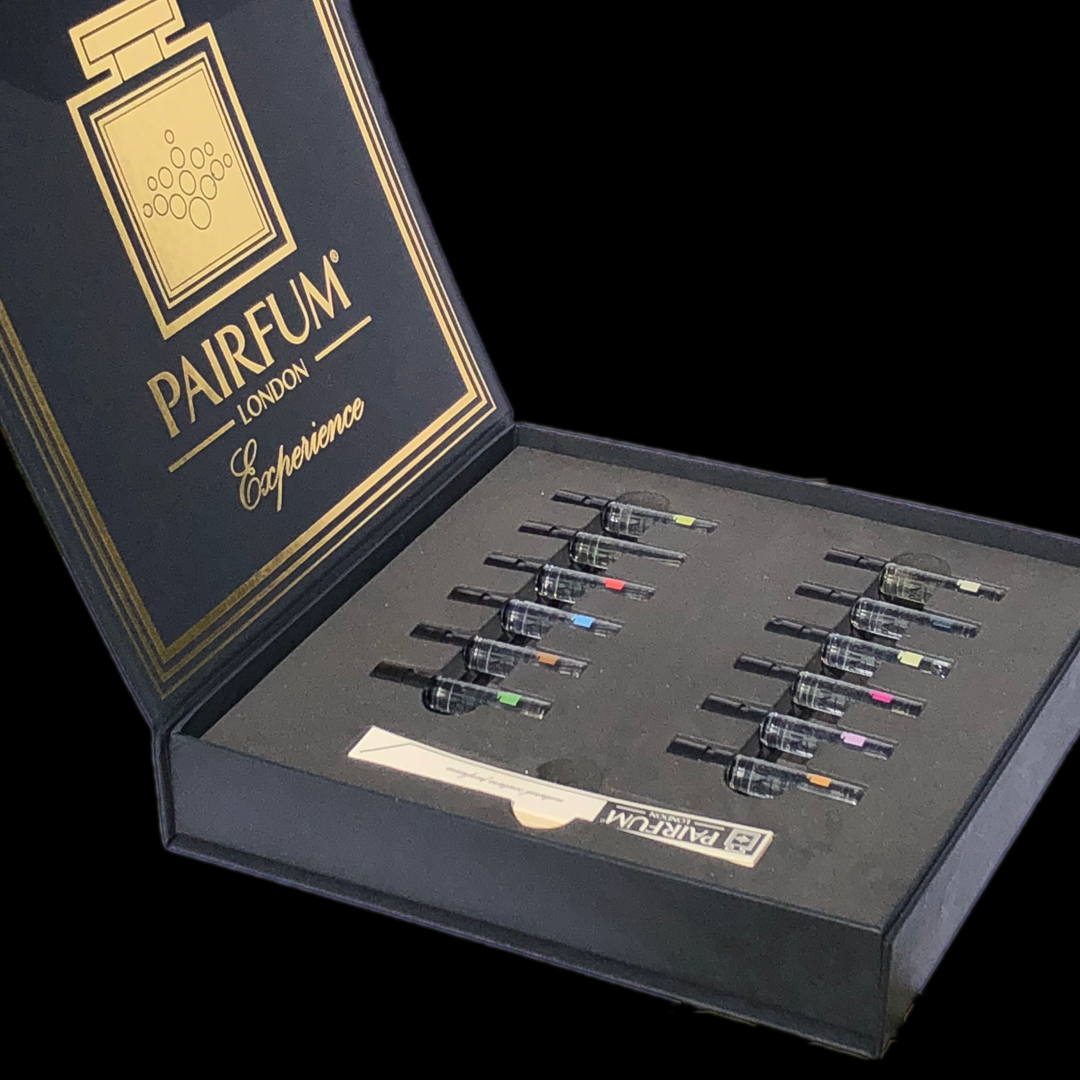Positive Scent Influence: How Smell Shapes Mood, Health and Memory

Positive scent influence is the hidden power of fragrance to transform mood, evoke memories and create deeper connections in everyday life. Fragrance is invisible, yet its ability to alter the way we feel is profound. The smell of bread straight from the oven, the familiar scent of lavender on clean sheets, or the crisp lift of a citrus scent in the morning can affect our state of mind within seconds. This is the essence of positive scent influence — the way fragrance, odour and aromatic notes interact with our memory, body and emotion to create balance, comfort or vitality.
Modern science now validates what ancient cultures knew intuitively: certain scents can calm, energise, restore focus or evoke deep connections. By studying the olfactory system and the psychology of smell, we can learn not just to appreciate fragrance but to actively harness its power.
The Science of Smell and the Olfactory System
The human olfactory system is unique among the senses. When scent molecules enter the nose, they bind to an olfactory receptor and send signals to the olfactory bulb. Unlike sight and sound, which pass through processing centres in the brain’s cortex before reaching emotional areas, smell connects almost immediately with the limbic system. This network includes the hippocampus and amygdala, which play central roles in memory and emotion.
Neuroscientific studies published in peer‑reviewed journals confirm the strength of olfactory cues. Researchers have shown that a specific scent can instantly recall details of a long forgotten memory, a phenomenon known as the Proust Effect. Clinical trials have also demonstrated measurable physiological changes: inhaling lavender can reduce cortisol (a stress hormone), slow heart rate and induce a calming effect. Meanwhile, peppermint and rosemary odours improve accuracy and speed in cognitive performance tasks.
This is why different scents are not simply pleasant. They change neural activity in ways that shape mood and behaviour. By choosing the right fragrance, we can deliberately create environments that inspire wellbeing and positive emotions.

Historical and Cultural Roots of Fragrance
The use of fragrance spans history and geography. In Ancient Egypt, priests burned frankincense, producing a pleasant odour believed to connect mortals with the divine. The Greeks recommended thyme and rosemary for vitality, while Roman bathhouses were filled with ambient scent from oils and herbs.
In Ayurveda, the soothing scent of sandalwood aligns mind and body, while Traditional Chinese Medicine prescribes aromatic plants for harmony. Medieval Europe valued rose and chamomile waters for their calming effect. Across these practices, fragrance was not embellishment but therapy — an incorporating scent into daily life to maintain balance.
Today, anthropologists and psychologists note that olfactory cues retain this role, continuing to regulate ritual, social bonding, and personal significance.
How Fragrances Influence Mood and Emotion
Research repeatedly demonstrates that fragrances influence mood, emotion and physiology in ways both immediate and long lasting.
Engaging with fragrance is ultimately a sensory experience that goes beyond the simple act of smelling. The textures, associations and environments linked with different aromas all play a part in shaping how we feel. For example, surrounding yourself with a calming scent such as lavender, chamomile or sandalwood not only influences the brain through the olfactory system but also nurtures the body’s relaxation response. This connection turns the everyday use of fragrance into a multi‑layered encounter that enriches both mind and surroundings.
Calming and Stress Relief
- Lavender: One of the most studied, strongly associated with a calming effect on anxiety and sleep.
- Chamomile: Its subtle soothing scent lowers tension and helps the body prepare for rest.
- Sandalwood: Promotes stillness and introspection.
Energising and Uplifting
- Citrus scents: Orange, lemon and grapefruit deliver uplifting scents proven to increase alertness and productivity.
- Peppermint: Enhances sustained attention and working memory.
- Eucalyptus: A cleansing stimulus that refreshes the senses.
Romantic and Comforting
- Rose: A universal symbol of connection and intimacy.
- Vanilla: A pleasant scent with warmth and nostalgia.
- Jasmine: Exotic, enveloping and evocative of closeness.
Psychological testing shows how a specific fragrance primes the brain for corresponding roles – citrus promoting vitality in the office, lavender inviting deep rest at night, rose evoking tenderness. It is not accidental: smell functions as an olfactory cue activating associated states.
Beyond Mood: Health Benefits of Scent
Odours also interact with physiology. In clinical environments, ambient scent has been shown to:
- Lower blood pressure and stimulate the parasympathetic nervous system.
- Improve immune function indirectly by enhancing sleep quality.
- Reduce the need for sedative medication when lavender diffusion is present in pre‑operative wards.
- Support recovery, as a familiar scent from home has been shown to relax patients in hospital environments.
Aromatherapy research suggests that a particular scent can influence neurotransmitters. For example, lavender stimulates gamma‑aminobutyric acid (GABA) receptors, inducing a natural tranquillity comparable to mild sedative effects but without side effects. Thus certain fragrances are not just symbolic but bioactive.

Scent in Everyday Life
Harnessing positive scent influence requires incorporating scent regularly into routines.
- Morning: Bright citrus fragrance to awaken the senses and create focus.
- Work: Diffusion of rosemary or peppermint oils for clarity. Some companies use scent marketing and scent branding in offices or retail to strengthen customer memory through signature aromas.
- Evening: A warm scented candle with lavender or vanilla initiates restfulness.
- Special occasions: Wearing a personal perfume as a signature scent makes a lasting impression and creates a positive association with the event.
- Hospitality and wellness: Hotels and spas deploy scent machines to produce a consistent ambient scent, enhancing guest experience through subtle olfactory cues.
Personalisation and the Signature Scent
Fragrance is personal. No two people process the same perfume identically due to differences in skin chemistry, genetics, and lived memories. A particular scent on one body may become an entirely new odor on another. This is why a signature scent can feel like a personal identity — a memory code carried invisibly.
Exploration can involve layering a body perfume with scented candles in the home, choosing uplifting scents for activity and a soothing scent for rest. In this way, incorporating scent becomes curation, guiding mood across settings.
The Role of Sustainability and Conscious Choices
There is growing awareness about the sustainability of fragrance oil and perfume constituents. Natural extraction, eco‑friendly wax for scented candles, and ethical sourcing ensure pleasant scents enhance wellbeing without depleting ecosystems.
Mindful selection allows the enjoyment of pleasant odours and positive mood reinforcement to align with environmental responsibility.

A Curated Positive Scent Experience with Pairfum London
For anyone wishing to deepen their understanding of how fragrances interact with memory, mood and wellbeing, the Fragrance Library Perfume Experience Box Collection offers an elegant way to explore. This beautifully presented set invites you to experience a range of perfumes side by side, allowing you to notice the subtle ways certain scents can shift perspective, recall memories, or create a new sense of identity. It transforms the act of smelling into a personal journey of exploration, where each fragrance reveals its own character and influence.
Fragrance Library Perfume Experience Box by Pairfum London
The collection brings together a variety of refined fragrances in perfectly sized bottles designed for sampling and layering. Its thoughtful presentation makes it ideal for discovering a signature scent, experimenting with different scents for different occasions, or simply enjoying the intimacy of fragrance in daily life. Each perfume is crafted to highlight the richness of natural notes, offering not just an assortment but a full sensory experience that helps you connect with the scents that truly resonate.
Conclusion
Smell is more than a background sense. It is a powerful regulator of mood enhancement, memory, and health, operating through the olfactory system and reinforced by olfactory cues. By recognising how certain fragrances affect us, by choosing the right scent at the right moment, and by bringing fragrance into our daily spaces, we not only enjoy pleasant scents but also amplify vitality, serenity and joy.
Positive scent influence demonstrates how 'fragrance' is memory, emotion and science entwined. From the flicker of a scented candle to the trace of perfume, it holds the power to create harmony, reshape experiences and leave a lasting impression.
https://www.pairfum.com/positive-scent-influence/?fsp_sid=9137
#ARTISANPERFUMERSOFLONDON #FRAGRANCE #INSTAPERFUME #NATURALFRAGRANCE #PERFUME #PERFUMELIBRARY #PERFUMELOVERS #PERSONALFRAGRANCE #POSITIVESCENTINFLUENCE #SCENT
Comments
Post a Comment